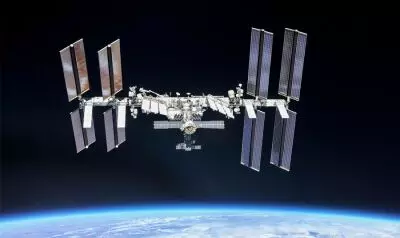
NASA reported thrusters used by Space Station to avoid hitting satellite
text_fieldsWashington: NASA has reported that the International Space Station had to activate thrusters to avoid hitting a satellite.
For more than six minutes, the engines were running. The station also had to gently alter its orbit to avoid the approaching satellite.
"The orbital outpost manoeuvred out of the way of an Earth observation satellite early Monday," the space agency wrote in a blog post.
"The docked ISS Progress 83 resupply ship fired its engines for just over six minutes slightly raising the station's orbit to avoid the approaching satellite," the post added.
The satellite appears to have been an Argentinian Earth-observation satellite launched in 2020, according to Sandra Jones, from NASA's Johnson Space Center, Space.com reported.
In a tweet Dr Jonathan McDowell, astronomer and astrophysicist at the Harvard-Smithsonian Center for Astrophysics, narrowed the possible candidates down to Nusat-17, noting the constellation's orbital decay.
Nusat-17 is one of ten commercial observation satellites that was launched in 2020 and are operated by geospatial data company Satellogic, the report said.
"The Nusat constellation is one of several whose orbits are slowly encroaching on the ISS's orbit," McDowell noted.
Meanwhile, NASA noted that the new orbital trajectory will not impact the upcoming departure of the NASA-SpaceX Crew-5 mission that has wrapped up after months aboard the ISS.
NASA astronauts Josh Cassada and Nicole Mann as well as Koichi Wakata of JAXA (Japan Aerospace Exploration Agency) and Roscosmos cosmonaut Anna Kikina would undock from the ISS at 5.05 p.m. March 9, for a scheduled splashdown at 9.25 p.m. March 10.
With inputs from IANS






















